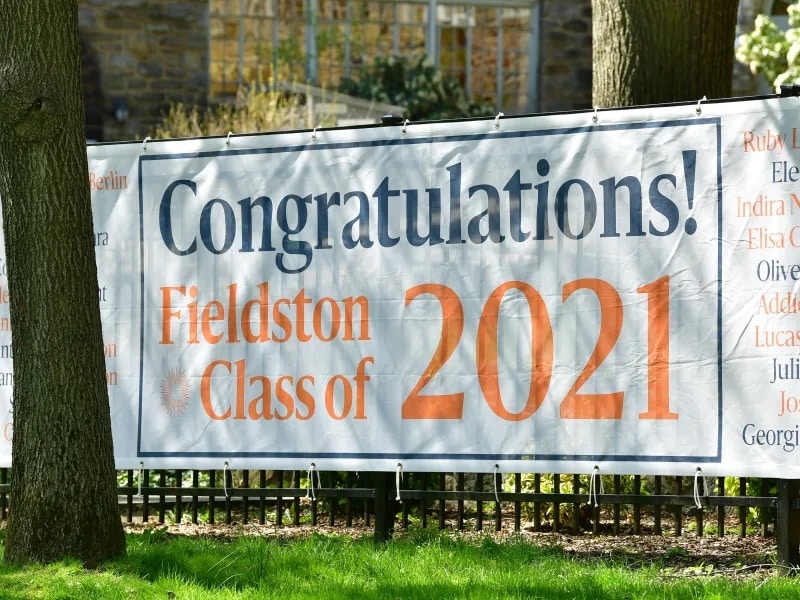The COVID-19 pandemic upended many longstanding practices in 2020, and the college application process was no different. As high schools went remote and universities cordoned off their campuses, seniors and their families not only had to grapple with an ever-evolving list of health and safety regulations, but they also had to navigate a new admissions system.
At the Ethical Culture Fieldston School, the College Office remained steadfast in its commitment to preparing students for life after ECFS. From whittling down college lists and running mock interviews, to editing personal essays and working with families on financial aid applications, the team guided this year’s seniors every step of the way. With the Class of 2021 having now decided on their future destinations, we asked Jameel Freeman, Director of College Counseling, to share some of the most noticeable trends from the past year — as well as predictions for the coming one.
1. Many colleges adopted a test-optional policy — and may continue to do so.
When SAT and ACT testing centers shut down throughout the country, virtually all colleges suspended their standardized testing requirement during last year’s admissions cycle. As a result, many colleges saw record increases in applicants. Before the COVID-19 pandemic, more than 1,000 colleges in the United States were already test-optional. While it remains to be seen whether test-optional policies will become the norm, it is likely that many schools will continue to offer a test-optional policy as a way to attract more prospective students.
At the least, one change will be permanent: The SAT Subject Tests, previously required or strongly recommended at many colleges, will be discontinued after June 2021.
2. There was an increase in equity that Freeman hopes will continue.
Thanks in part to the suspension of standardized testing requirements, historically underrepresented and marginalized groups applied to selective colleges in greater numbers than ever before. That trend gave colleges the opportunity to field applications they might not otherwise have seen and to diversify their incoming student body.
Increasing access is one way to bring equity to higher education.
Freeman hopes this trend will continue. He explains there’s a trickle-down effect: When one student is the first in a high school to gain admission to a specific college, that student can become a role model for younger students, who may then be inspired to apply. With greater context about, and subsequent outreach to, that particular high school, colleges can sustain a relationship with the school and recruit future applicants. Increasing access is one way to bring equity to higher education, and it’s a goal that Freeman believes everyone in the ECFS community should get behind.
3. As some colleges continue to monitor interest, they are also giving greater incentives for enrollment.
Due to the increase in student applications and the lack of in-person events, some colleges relied on other means to gauge student interest. Logging into an online info session or going on a virtual tour? Those digital interactions were often tracked by admissions officers. Freeman notes that students should be mindful of this tracking system as they prepare to apply to college next fall.
The flip side is that many of these colleges, once they’ve admitted students, are eager to have them enroll. In some cases, colleges awarded merit scholarships — even to families who didn’t request financial assistance — as a way to attract students.
4. Virtual recruitment is here to stay.
After a year of pivoting to online recruitment events, many colleges have realized they can reach a broader pool of students virtually, and they will continue to utilize this recruitment strategy. While college campuses are reopening for prospective students and in-person tours, high school visits and large-scale programs hosted by admissions officers will gradually decline. With guidance from the College Office, students can instead take advantage of the abundant opportunities to get to know a college online — and to find a place they’re eager to call home.




